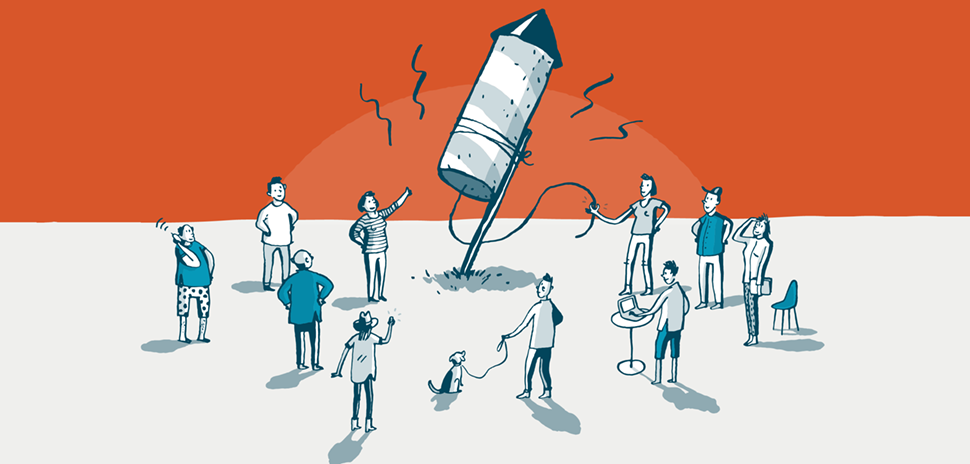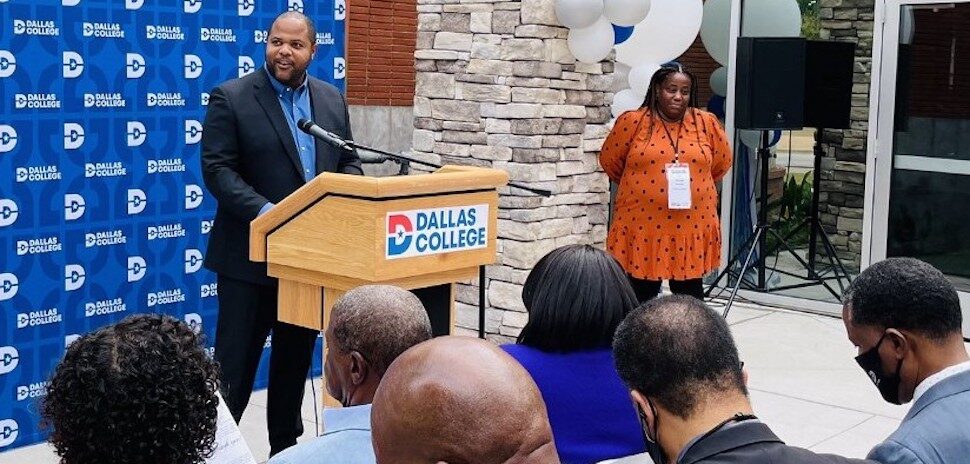![]() Dallas-based Good Work Founder Garrett Winder’s web development skills go back to his college days.
Dallas-based Good Work Founder Garrett Winder’s web development skills go back to his college days.
As an accounting major at Abilene Christian University in the mid-2000s, Winder and his roommate decided to build a marketplace for students to sell items at the school, although Facebook beat them to the punch with its own version of the envisioned online market. But, because Winder learned development skills while working on the erstwhile marketplace, he was able to pick up client projects while still in school.
![]() After graduating from ACU, instead of moving home during the then ongoing mortgage crisis, he and his partner bought an office and went into the dev business. A few years later, Winder took a development operations position at a well-known digital agency in England before moving back to the states and founding Good Work in early 2014.
After graduating from ACU, instead of moving home during the then ongoing mortgage crisis, he and his partner bought an office and went into the dev business. A few years later, Winder took a development operations position at a well-known digital agency in England before moving back to the states and founding Good Work in early 2014.
The company is a web and mobile development partner for design teams including startups, brands, and agencies, serving as its clients’ technical partner and building websites, apps, and other digital projects.
Good Work markets itself as “a development partner that speaks human, is easy to work with, and cares about your projects as much as you do.”
Winder said the main idea behind Good Work is communication, an area where development firms sometimes fall short. The company markets itself as “a development partner that speaks human, is easy to work with, and cares about your projects as much as you do.” Over its four years, Good Work has grown to eight full-time employees with five in Dallas and three in the U.K.

Garrett Winder
One area where Winder noticed smaller companies were underserved is custom websites. A full-blown custom site from a firm like Good Work was cost prohibitive for many small businesses and startups, but those companies wanted a more custom web experience to help set the brand apart from some of the cookie-cutter, low-cost options available.
To meet this marketplace gap Winder created Hatch, a website development service that combines a customized homepage with some more standardized template elements at a cost comparatively lower than a fully custom web development project.
Winder took time recently to tell Dallas Innovates a bit more about Hatch as well as the challenges of ramping up a new project — which technically competes with Good Work’s core business — while running a growing startup.
What is the idea behind Hatch?
Hatch is a productized website service that lives somewhere between Wix or Squarespace and a fully custom website. For a monthly payment, you get a website that’s custom enough for most small businesses and comes with perks like unlimited support, updates, and hosting.
Why did you decide to create this web development service?
We talk to people on a weekly basis who don’t have the budget for a fully custom web project, but don’t want a Wix website either. They want something in between, and that’s exactly what this is.
Does Hatch have any competition in the marketplace?
Web design companies that have similar quality/costs to Hatch. Good Work is a competitor as well, knowing when to pitch Hatch rather than a full service Good Work project is a bit of an art.
What sets Hatch apart in the market?
We have a financial structure with Good Work that allows us to create these Hatch projects up front, but still split the payments over 12 months for the customer.
We try to approach side projects in the same way we do paid client work or else it’ll never get done.
This adds another level of approachability that is expected in SaaS (software-as-a-service) markets, but very rare in client services.
Creating an entirely new service within a successful business can be a challenge. What did you learn along the way?
We try to approach side projects in the same way we do paid client work or else it’ll never get done. We fleshed out the idea on a whiteboard and prioritized the important to-dos required to market it: Name, Brand, Landing Page. While all of that was going on we built out a demo-able version of the product. This took about a month from start to finish.
Our main obstacle so far has been juggling the work involved in getting Hatch off the ground alongside running Good Work.
Do you expect Hatch to impact Good Work going forward?
For now, we’re going to keep it as a department of Good Work, but fully expect to have dedicated employees working only for Hatch.
You need a good team and partners in place so you have time to work on your business rather than for it.
We plan to have two new Hatch team members in addition to our current Good Work team members by the end of the year.
What advice do you have for other entrepreneurs?
Delegate! You can’t (and shouldn’t) do everything by yourself. You need a good team and partners in place so you have time to work on your business rather than for it.
We’ve been blessed with a fun and incredibly smart team that regularly makes decisions and puts processes in place that I would have never been able to do on my own.
![]()
Get on the list.
Sign up to keep your eye on what’s new and next in Dallas-Fort Worth, every day.






























